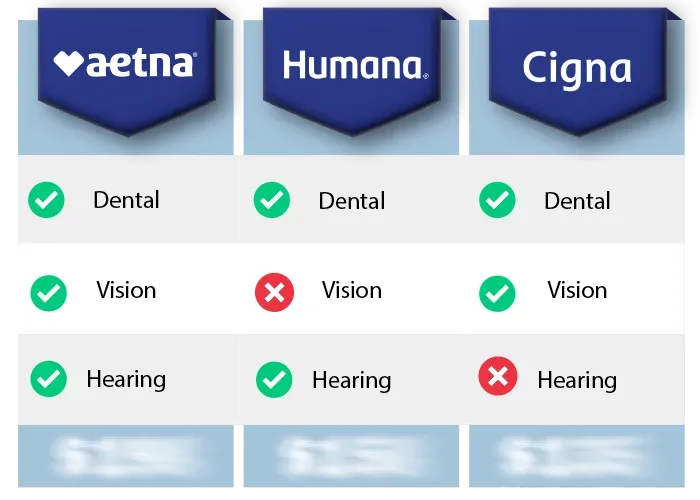
List Medicare Insurance Plans: Navigating Your Healthcare Options
List Medicare Insurance Plans: Navigating Your Healthcare Options
Navigating the landscape of Medicare insurance plans can be daunting for many seniors and eligible individuals. This comprehensive article aims to provide a detailed exploration of the various types of Medicare insurance plans available, assisting you in making an informed decision regarding your healthcare needs.
Introduction to Medicare Insurance Plans
Medicare is a federal program that offers healthcare coverage to individuals over the age of 65, as well as to certain younger people with disabilities or specific medical conditions. Understanding the different parts of Medicare and the types of plans that can complement or enhance the standard coverage is crucial for optimizing your healthcare benefits.
The Basic Structure of Medicare
Medicare is divided into several parts, each covering different aspects of healthcare:
Medicare Part A (Hospital Insurance): Covers inpatient hospital stays, care in a skilled nursing facility, hospice care, and some home health care.
Medicare Part B (Medical Insurance): Covers certain doctors' services, outpatient care, medical supplies, and preventive services.
Medicare Part C (Medicare Advantage): Offers an alternative way to receive your Medicare benefits through private insurance companies approved by Medicare.
Medicare Part D (Prescription Drug Coverage): Adds prescription drug coverage to Original Medicare, some Medicare Cost Plans, some Medicare Private-Fee-for-Service plans, and Medicare Medical Savings Account plans.
Exploring Medicare Advantage Plans
Medicare Advantage Plans, also known as Part C, provide all the benefits of Parts A and B and often include additional benefits such as dental, vision, and hearing care. These plans are offered by private insurance companies that have contracts with Medicare. When choosing a Medicare Advantage plan, it's essential to consider factors such as network restrictions, plan costs, and the additional benefits offered.
Types of Medicare Advantage Plans
Health Maintenance Organizations (HMOs): Require you to use healthcare providers and facilities within the plan's network and usually need a referral from your primary care doctor to see a specialist.
Preferred Provider Organizations (PPOs): Allow you to see providers outside of the network at a higher cost and generally do not require referrals.
Private Fee-for-Service Plans (PFFS): Determine how much they will pay providers and how much you must pay when you receive care.
Special Needs Plans (SNPs): Provide focused and specialized health care for specific groups of people, such as those with certain chronic conditions or who live in institutional settings.
Understanding Medicare Supplement Insurance (Medigap)
Medigap is additional health insurance that you buy from a private company to pay health care costs not covered by Original Medicare, such as copayments, deductibles, and health care if you travel outside the U.S. Medigap policies are standardized and must follow federal and state laws. There are several different Medigap plans available, identified by letters (e.g., Plan A, Plan B). Each plan offers a different level of coverage and works only with Original Medicare.
Enrollment Periods and Plan Choices
Understanding when and how you can enroll in or change Medicare plans is crucial:
Initial Enrollment Period: A 7-month period that begins three months before the month you turn 65 and ends three months after that month.
General Enrollment Period: If you miss your Initial Enrollment Period, you can enroll between January 1 and March 31 each year, with coverage starting on July 1.
Medicare Open Enrollment Period (Annual Election Period): From October 15 to December 7 each year, during which you can change your Medicare health or drug coverage for the following year.
Conclusion
Choosing the right Medicare insurance plan requires understanding all your options and how they align with your health care needs and financial possibilities. By carefully assessing the types of Medicare plans and their specific benefits and costs, you can make a more informed decision that ensures comprehensive coverage and peace of mind.

Copyright © 2025 Senior Benefits Guide All Rights Reserved.
204 Church St Suite 1A, Boonton NJ 07005
Disclaimer: This website is not affiliated with the Medicare/Medicaid program or any other government entity. The information provided on this website is for informational purposes only. It is not intended to be, nor does it constitute any kind of financial advice. Please seek advice from a qualified professional prior to making any financial decisions based on the information provided. This website acts as an independent digital media & advertising publisher. This webpage is formatted as an advertorial. An advertorial is an advertisement that is written in an editorial news format. PLEASE BE AWARE THAT THIS IS AN ADVERTISEMENT AND NOT AN ACTUAL NEWS ARTICLE, BLOG, OR CONSUMER PROTECTION UPDATE. This website MAY RECEIVE PAID COMPENSATION FOR CLICKS OR SALES PRODUCED FROM THE CONTENT FOUND ON THIS WEBPAGE. This compensation may affect which companies are displayed, the placement of advertisements, and their order of appearance. Any information, discounts, or price quotations listed may not be applicable in your location or if certain requirements are not met. Additionally, our advertisers may have additional qualification requirements.
Our goal is to provide exceptional service. One of our agents may reach out to you to discuss your order, ask for feedback, and/or see if you need any assistance with your products, services, or plans, at the phone number you provided regardless of your do-not-call list status. You may opt-out of further contact at any time by simply telling our customer service team that you would no longer like to be contacted. In the event that our team is unable to reach you by phone, they may send you a text message letting you know that we called. Both our text messages and phone calls may be sent or connected utilizing automated software. Carrier charges may apply. You may opt-out of any future contact via text message by replying anytime with "STOP".
Copyright © 2025 All Rights Reserved.
Find Medicare Advantage Plans in 3 Easy Steps

